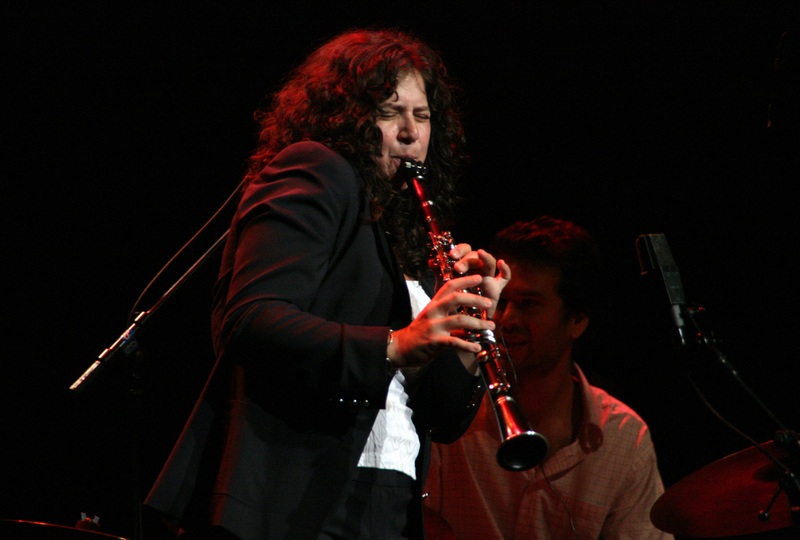
 Anat Cohen |
 Joshua Redman |
|
Story by Jean Timmons
On many of Cohen's albums, she includes Brazilian choro music, as well as Argentine tango music, e.g., Nosso Tempo/Choro Ensemble and Poetica. This evening she included two Brazilian pieces. Both lent themselves well to her clarinet, and the ballad, "When Will My Longing End," was exquisite. The group concluded their set with a rousing "After You've Gone," which she has recorded on her latest album, Clarinetwork Live at the Village Vanguard. On this they picked up the tempo with Anat exploring the clarinet's range. With the pianist singing/humming along at some points, it was all great fun and quite a contrasting introduction to James Farm.
This lack of identification enveloped the music in mystery and compelled the listener's concentration on both music and musicians. It was constant anticipation. They played no standards, so I will refer to the works by number. Opus #1, a medium-paced piece, began with Redman sending forth a deeply melodic sound, emanating from a crouched stance as he tapped his foot in his buckled shoes. His control was apparent in the structure of his playing that built on a few chords. Control marked all their approaches as the program developed. For Opus #2 the pianist sets the pace with lines mingling with the polyrhythm set loose by the drummer. Each musician confidently developed his solo, and each improvisation was interesting. At this point, it became apparent that no one player, such as a leader, would take the lion's share of the playing time. The extraordinary role of the drummer in providing a variety of rhythms was constant and crucial. Opus #4 suggested classical music, with the piano steadily assuming more importance in the interplay among bass, piano, and drums, until Redman entered with his soprano saxophone to contribute a soft, ethereal jazz quality. On Opus #5, Redman proceeded at a fast tempo as the drummer drove him to incredible changes. It seems Redman reached a place where everything was golden and the drummer grew so intense that a piece of one of his sticks flew through the air. It seemed to even take him by surprise. Opus #6 started with Redman speaking through his soprano. It was not quite a ballad, for it picked up on the marching figure laid down by Harland. Then Penman, the strong bassist, took a solo that showcased his virtuosity. The design of the piece seemed to be featured over the playing, ending with solo piano that built, reminiscent of a bolero, until Joshua's return. At its conclusion that remarkable drummer comes back and just sings. After the applause diminished, Redman briefly introduced the musicians of James Farm, bringing to a close an utterly fascinating performance.
|